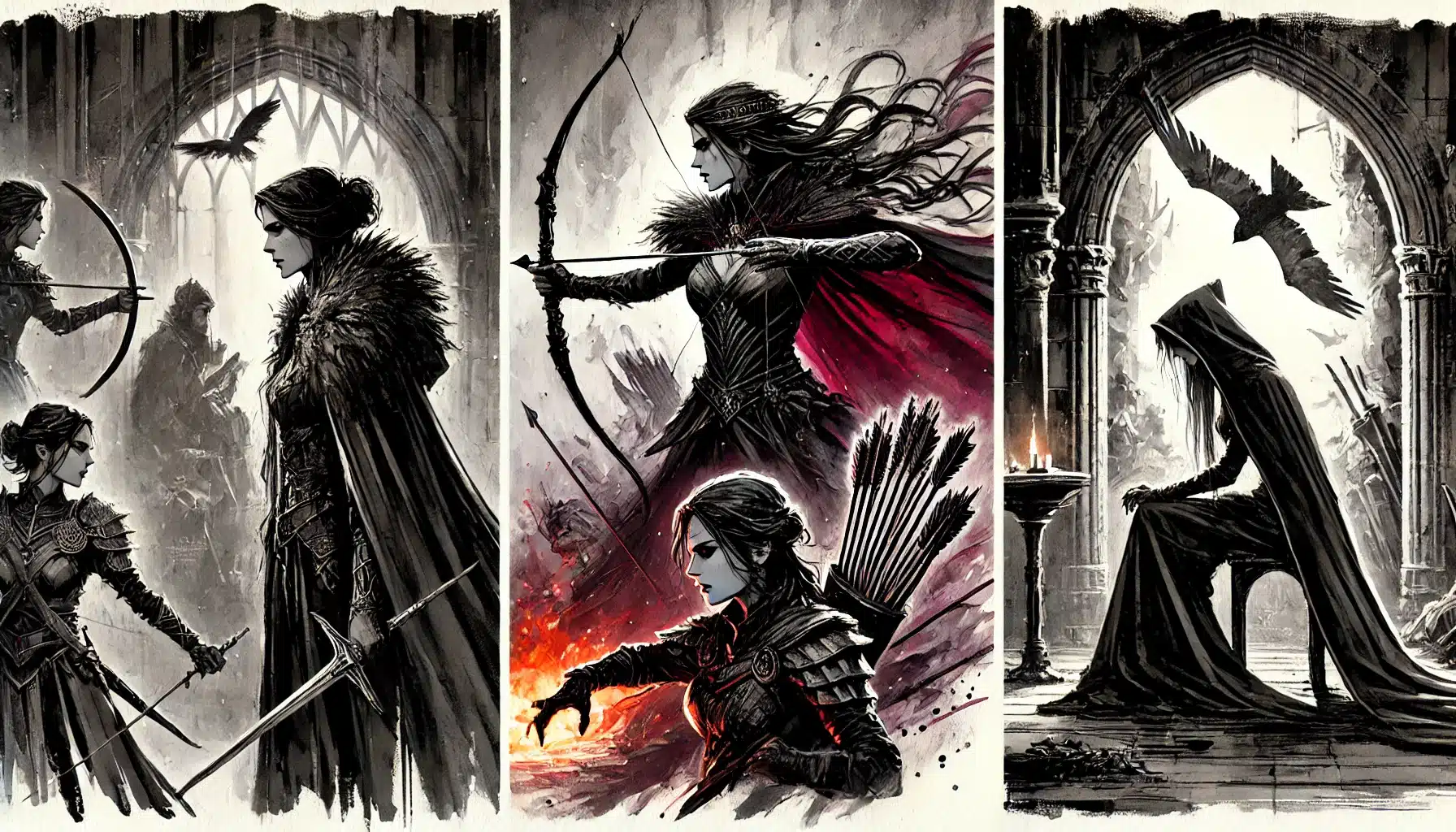Think back to the RPG villains who have haunted your campaign notes—or your players’ nightmares—long after the dice stopped rolling. What set them apart from the parade of generic baddies encountered on the road? It’s not just power or cruelty. The truly memorable antagonists are driven by motives that feel shockingly real, heartbreakingly personal, or disturbingly reasonable. They don’t exist purely to thwart the heroes; they act with intent, shaping the world with every maddening choice and grim sacrifice.
Great villain motivation is the beating heart of any campaign worth remembering. When a Dungeon Master gives their adversary a goal that makes sense—at least within that villain’s twisted worldview—the whole story gains new dimension. Suddenly, battles aren’t just obstacles; every confrontation hints at something deeper, a current of desire or desperation tugging the story off the rails. These motives tie the villain to the setting and, crucially, to the player characters themselves.
And yet, in the chaotic flux of sandbox D&D play or improvisational sessions, it’s all too easy to scramble for the why behind a villain’s scheme. You might have the stat block, the scenery, even their razor-edged quips queued up, but if you don’t know what drives them, the encounter feels hollow. When the players ask, “Why is the masked sorcerer doing this?” you need a real answer—one that breathes, stings, or seduces.
That’s where this cheat sheet comes in. Whether you’re prepping an elaborate campaign arc or improvising furious in the moment, these motivations can be dropped into any scenario to inject instant depth. No two-dimensional monsters here—just a toolkit for drama, intrigue, and emotional punch, ready at a moment’s notice.
How to Use These Villain Motivations
Each motivation on this list is crafted to stand alone, giving you everything you need to anchor a villain’s immediate actions and future ambitions. If you’re pressed for time, just roll a die and plug the result in; if you have a specific tone or campaign arc in mind, hand-pick the entry that best fits your game’s flavor. Want to spiral your villain’s psychology into something grander? Combine two or even three motivations for a deliciously complex nemesis.
There are no wrong ways to deploy these seeds. Some work beautifully as a one-shot’s core conflict, while others can unfold into multifaceted threats pulling strings in several sessions. A mercenary mogul may start with selfish intent but drift toward vengeance; a zealous cult leader might quietly transform into a political mastermind as the stakes rise. Motivations aren’t static—they’re a beginning, not an endpoint.
Try my AI Tabletop RPG generators...and an extensive library of content!
As the story evolves, let your villain’s driving force shift in response to the world and the heroes. Player actions change minds, open old wounds, or spark new ambitions. The best campaigns are dynamic ecosystems, and when your antagonists feel that same complexity, players will lean in, eager to discover (or thwart) their next move.
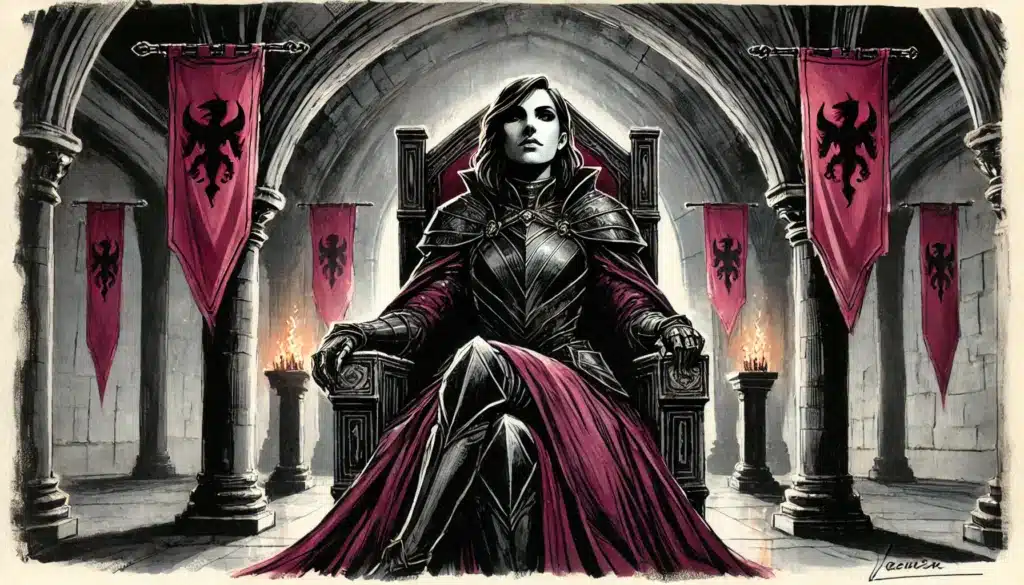
d20 Selfish Motivations (1–20)
Selfish motivations sing with possibility and peril, spinning stories of grasping hands and bottomless hungers. These villains are creatures of appetite—seeking gold, power, luxury, or something intimate and fleeting. Most think only of themselves: the climb, the escape, the hollow victory. Their confidence can make them arrogant; their self-involvement, a crack the players might exploit.
Such adversaries are more than mere obstacles—they’re wild cards. You can bribe, swindle, trick, or appeal to their vanity. Sometimes all it takes is a clever deal and they’ll hand over the keys to the kingdom, or turn on their own allies if the price is right.
| d20 | Villain Motivation | d100 Index |
|---|---|---|
| 1 | Seeks riches at any cost—even if that means breaking every law or trust in the land. | 1 |
| 2 | Hungers for fame; wants their name to outshine all legends, no matter who must fall. | 2 |
| 3 | Believes they’re destined for greatness and will step on any neck to climb the ladder. | 3 |
| 4 | Obsessed with acquiring a rare object or artifact, convinced it will change their life forever. | 4 |
| 5 | Will do anything to escape a personal debt or humiliating secret from their past. | 5 |
| 6 | Desires forbidden pleasures or luxuries denied by society’s rules—will break them without regret. | 6 |
| 7 | Driven to outdo a rival and prove themselves superior, no matter how petty the contest. | 7 |
| 8 | Paranoid about enemies and acts ruthlessly to eliminate even imagined threats. | 8 |
| 9 | Desperate just to survive, sacrificing others to stave off a looming personal demise or curse. | 9 |
| 10 | Hoards power for its own sake, unable to relinquish even a sliver of control. | 10 |
| 11 | Gambles everything on a risky scheme, willing to burn bridges to strike it rich or gain influence. | 11 |
| 12 | Craves attention and adulation, addicted to the spotlight and all it brings. | 12 |
| 13 | Seeks vengeance not for justice, but simply to feel important or feared by others. | 13 |
| 14 | Wants to inherit or usurp a title purely to elevate their status. | 14 |
| 15 | Fears being forgotten; commits infamous acts just to be remembered. | 15 |
| 16 | Breaks laws simply for the thrill of getting away with it; a true outlaw at heart. | 16 |
| 17 | Betrayed by a friend, now refuses loyalty to anyone—trust is for fools. | 17 |
| 18 | Wants to win at any cost, obsessed with besting the party in any contest. | 18 |
| 19 | Desires control over a person, group, or place that symbolizes what they lack. | 19 |
| 20 | Seeks personal transformation—eternal youth, new identity, second chance—regardless of the cost. | 20 |
Selfish villains are tailor-made for short arcs, messy bargains, or those deliciously murky shades of morality. Drop one into a contest of egos, a thieves’ den, or a bitter rivalry, and watch the sparks fly. Their self-interest creates openings for negotiation, sabotage, or ironic downfalls.
⚔️ Fantasy RPG Random Tables Books
Make life as a Gamemaster easier…
If you play Dungeons & Dragons, Pathfinder, or other fantasy RPGs, this
RPG random tables series
is packed with encounters, NPCs, treasure, and more. Available in eBook or print—either way, you’ll have a wealth of adventure ideas at your fingertips.
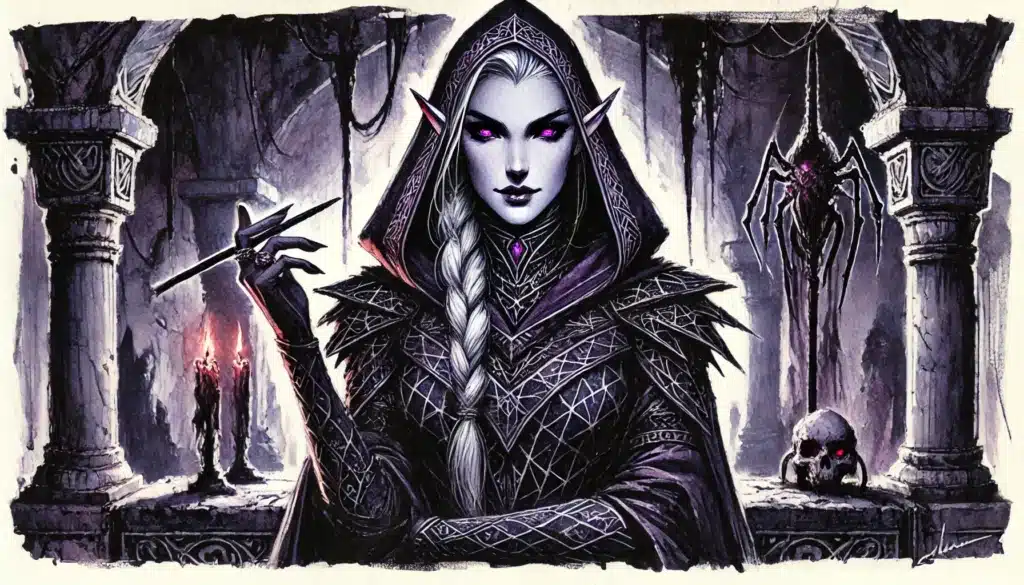
d20 Idealistic Motivations (21–40)
Some villains are terrifying precisely because they believe themselves righteous. Perhaps they’re defenders of ancient tradition, self-appointed saviors, or the chosen emissaries of a half-remembered prophecy. These antagonists aren’t tricked by greed or ego—they’re guided by conviction, often ready to lay down everything for their vision of the greater good.
This earnestness isn’t just window dressing. It can drive them to extremes, making them harder to sway and terrifyingly sincere. Their ideals often mirror or twist the values of your player characters, throwing every encounter into stark relief—whose morals win?
| d20 | Villain Motivation | d100 Index |
|---|---|---|
| 1 | Fights for law and order, convinced their strict regime will prevent greater chaos. | 21 |
| 2 | Believes the prophecy leaves no room for alternatives—the world must follow the script. | 22 |
| 3 | Seeks to purge corruption through any means, no matter the cost in innocent lives. | 23 |
| 4 | Wants to unite warring factions under a single banner “for their own good.” | 24 |
| 5 | Seeks to preserve ancient traditions, destroying “decadent” innovations. | 25 |
| 6 | Would sacrifice themselves (and others) to avert a predicted catastrophe—real or imagined. | 26 |
| 7 | See themselves as misunderstood heroes bringing enlightenment to the masses. | 27 |
| 8 | Believes only select bloodlines deserve power; all others must serve. | 28 |
| 9 | Operates as a vigilante judge, jury, and executioner, dispensing what they see as true justice. | 29 |
| 10 | Accepts collateral damage as necessary for “a glorious future.” | 30 |
| 11 | Wants to free their people from tyranny, even if it means starting a war. | 31 |
| 12 | Thinks peace can only be achieved through total obedience or mind control. | 32 |
| 13 | Pursues balance in the world, destroying forces they consider disruptive—even heroes if necessary. | 33 |
| 14 | Upholds a religious dogma with genocidal zeal. | 34 |
| 15 | Considers themselves the true heir to a lost civilization with a mandate to conquer. | 35 |
| 16 | Pushes dangerous technology or magic in the name of progress. | 36 |
| 17 | Believes suffering purifies souls, and inflicts it out of pity, not hatred. | 37 |
| 18 | Driven by the vision of an ideal society, purging anyone who doesn’t fit. | 38 |
| 19 | Seeks to “save” the world by destroying what cannot be redeemed. | 39 |
| 20 | Genuinely loves their followers and willingly becomes a monster for their sake. | 40 |
Idealistic adversaries force players to grapple not just with steel and magic, but with philosophy and doubt. These villains turn every confrontation into an ethical dilemma: can good people do terrible things? Can the heroes reason with them—or must ideals shatter on the field of battle?
d20 Vengeful or Reactive Motivations (41–60)
Where some villains pursue dreams, others are driven by nightmares. These are the cutthroat survivors, the betrayed confidants, the wounded souls who turn pain outward. Often, their descent into villainy feels all too plausible: an injustice left to fester, a heartbreak curdled into obsession. They lash out not always at the world at large, but at those they hold responsible—sometimes, even the heroes themselves.
These motivations are ripe for recurring nemeses. Each encounter deepens the wound, giving the villain new reasons to return: smarter, angrier, or more desperate. Their motivations can evolve or decay, leaving the party wrestling with guilt, responsibility, or the temptation for mercy.
| d20 | Villain Motivation | d100 Index |
|---|---|---|
| 1 | Betrayed by an ally, now destroys any group that resembles their former friends. | 41 |
| 2 | Lost a loved one and blames the heroes (or their organization) for the tragedy. | 42 |
| 3 | Sworn to avenge a personal humiliation suffered in public. | 43 |
| 4 | Was once wrongfully punished; now seeks revenge against all authority. | 44 |
| 5 | Driven to madness by the scars of war, takes it out on perceived enemies. | 45 |
| 6 | Betrayed by a mentor, now corrupts or kills promising youths. | 46 |
| 7 | Targeted by prejudice, now lashes out at the wider world. | 47 |
| 8 | Once trusted the party; after a perceived slight, now ruins their every plan. | 48 |
| 9 | Spurned in love, now undermines or stalks their former companion. | 49 |
| 10 | Lost everything to a disaster they believe the party could have prevented. | 50 |
| 11 | Was exiled from their homeland and works to destroy its reputation. | 51 |
| 12 | Seeks to avenge the death or downfall of someone they respected, no matter who stands in the way. | 52 |
| 13 | Once powerless, now takes vengeance on all who remind them of their former helplessness. | 53 |
| 14 | Consumed by guilt and tries to “fix” past mistakes at any cost—damning themselves further. | 54 |
| 15 | Hates heroes as a class for failing to save their family, village, or cause. | 55 |
| 16 | Seeks to make the world feel the pain they endured. | 56 |
| 17 | Blames a specific NPC (or PC) and destroys all close to them as punishment. | 57 |
| 18 | Will not rest until a personal grudge is settled, ignoring all higher causes or profits. | 58 |
| 19 | Framed for a crime and wants the real perpetrator—and anyone complicit—to suffer. | 59 |
| 20 | Endures a curse and targets anyone they think caused or perpetuates it. | 60 |
Vengeful villains are catnip for campaigns that thrive on personal stakes. Entwine one with a PC’s backstory, a half-forgotten act of kindness or cruelty, and watch as the lines between justice and revenge blur every time they return.
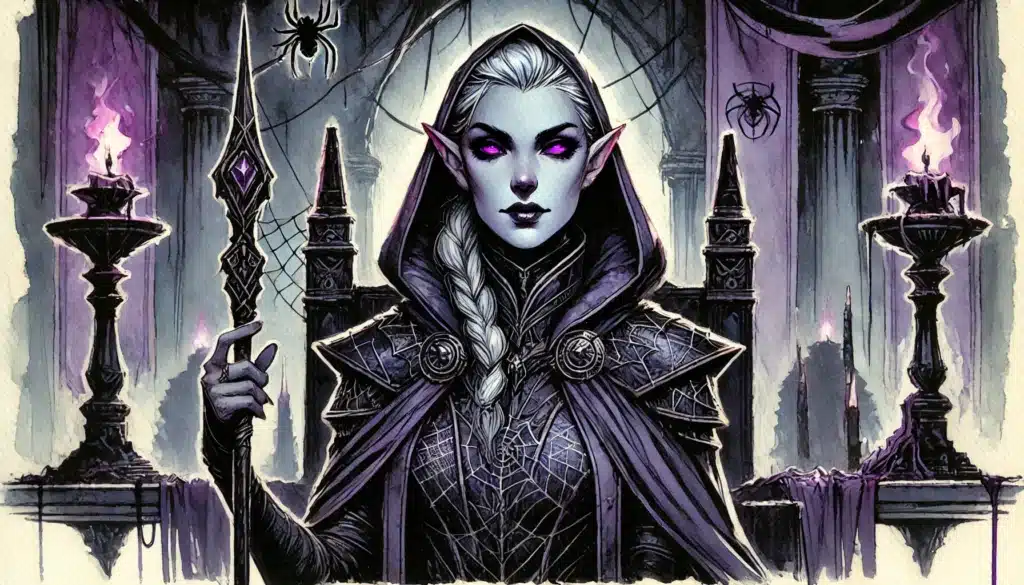
d20 Cosmic or Supernatural Motivations (61–80)
Sometimes, your villain’s motives spiral beyond mortal comprehension. These antagonists answer to gods, cosmic forces, unknowable instincts, or monstrous hungers. Their plans jolt the world off its axis: raising ancient horrors from slumber, fulfilling a pact twisted by infernal logic, or pursuing truths not meant for mortal minds.
Such villains rarely bargain—they are swept along by destinies far older and larger than themselves. Facing them feels like staring into the abyss: thrilling, terrifying, and deeply strange. They often become the focal point of late-stage campaigns, where the stakes jump beyond kingdoms and simple revenge.
| d20 | Villain Motivation | d100 Index |
|---|---|---|
| 1 | Tasked by a god to enact a divine plan, indifferent to mortal consequences. | 61 |
| 2 | Haunted by visions of apocalypse; compelled to hasten or prevent it. | 62 |
| 3 | Bound by an ancient curse, must perform forbidden rituals to stave off disaster—or unleash it. | 63 |
| 4 | Serves as the earthly avatar of a forgotten cosmic entity. | 64 |
| 5 | Seeks forbidden knowledge that will unravel reality itself. | 65 |
| 6 | Driven to awaken a slumbering god, monster, or primordial force. | 66 |
| 7 | Is not truly sentient—merely a vessel for an eldritch intelligence. | 67 |
| 8 | Tries to transcend mortal form, regardless of collateral damage. | 68 |
| 9 | Destined to end or remake the world—by prophecy or cosmic accident. | 69 |
| 10 | Exists in multiple realities at once; their actions make sense only in that context. | 70 |
| 11 | Bound by a pact with a demon, fey, or other extraplanar power, compelled to obey. | 71 |
| 12 | Seeks to reorder the laws of magic or physics for the benefit of something inhuman. | 72 |
| 13 | Believes mortal suffering is necessary to feed or appease a supernal force. | 73 |
| 14 | Acts to maintain or destroy cosmic balance, never explaining their rationale. | 74 |
| 15 | Pursues mortals’ souls as currency or nourishment for their masters. | 75 |
| 16 | Is haunted or possessed, acting out impulses not entirely their own. | 76 |
| 17 | Knows a terrible secret about the universe and will do anything to keep (or spread) it. | 77 |
| 18 | Transforms others into monsters or vessels to fulfill an otherworldly agenda. | 78 |
| 19 | Is a magical accident—purpose emerges only as the campaign unfolds. | 79 |
| 20 | Exists on a repeating cycle of destruction and rebirth, fated to play their part over and over. | 80 |
These motivations are perfectly at home in epic-tier campaigns, strange mysteries, or world-shaking cataclysms. Deploy when you want players to feel small—yet crucial—in the cosmic design, or to pit them against forces no mere mortal can truly understand.
d20 Strategic or Political Motivations (81–100)
Power isn’t always won by brute force or dark prophecy; sometimes it’s captured in whispers, secrets, and the promise of future favors. These villains are the shadows behind the throne—the master spies, guildmasters, and politicians whose every move is a calculated gambit. Controlling the flow of information, wealth, or influence is their game; they manipulate people and systems as deftly as any spell.
Such motivations make for sophisticated arcs. These antagonists rarely face the heroes head-on; instead, their schemes ripple outward, toppling regimes or inciting unrest with a flick of the wrist. The players might never see the villain’s hand—until it’s too late.
⚔️ Fantasy RPG Random Tables Books
Make life as a Gamemaster easier…
If you play Dungeons & Dragons, Pathfinder, or other fantasy RPGs, this
RPG random tables series
is packed with encounters, NPCs, treasure, and more. Available in eBook or print—either way, you’ll have a wealth of adventure ideas at your fingertips.
| d20 | Villain Motivation | d100 Index |
|---|---|---|
| 1 | Seeks to usurp the throne or place a puppet ruler on it. | 81 |
| 2 | Orchestrates wars for personal profit or to destabilize enemies. | 82 |
| 3 | Blackmails the powerful to ensure loyalty and silence dissent. | 83 |
| 4 | Owns a trade guild and eliminates all competition—by law or blade. | 84 |
| 5 | Spreads rumors, forges evidence, or sways public opinion to achieve their ends. | 85 |
| 6 | Disrupts diplomatic ties to annex territory or sway borders. | 86 |
| 7 | Amasses arcane or technological secrets to gain leverage over rivals. | 87 |
| 8 | Brutally suppresses rebels and dissenters to maintain absolute rule. | 88 |
| 9 | Infiltrates organizations or courts, manipulating events from within. | 89 |
| 10 | Controls a network of spies, assassins, or thieves for information and power. | 90 |
| 11 | Frames the innocent to remove potential threats before they rise. | 91 |
| 12 | Withholds magic, goods, or aid to force towns or nations into dependence. | 92 |
| 13 | Plays rival factions against each other to remain essential as a “peacekeeper.” | 93 |
| 14 | Offers false hope or salvation to justify tightening their grip. | 94 |
| 15 | Spreads chaos so only they have the solution or antidote. | 95 |
| 16 | Controls a secret society, aiming to rule from the shadows. | 96 |
| 17 | Exploits ancient laws, loopholes, or succession crises to seize power. | 97 |
| 18 | Uses marriages, alliances, and betrayals as weapons on the political battlefield. | 98 |
| 19 | Funds or arms revolutionaries, then betrays them once their goal is achieved. | 99 |
| 20 | Fosters dependency by offering “aid” that comes with invisible chains. | 100 |
If your campaign bubbles with intrigue, dense city politics, or multi-faction drama, these motivations are pure gold. Layer several together for webs of deception—every encounter, every clue, a step on the villain’s ruthless game board.
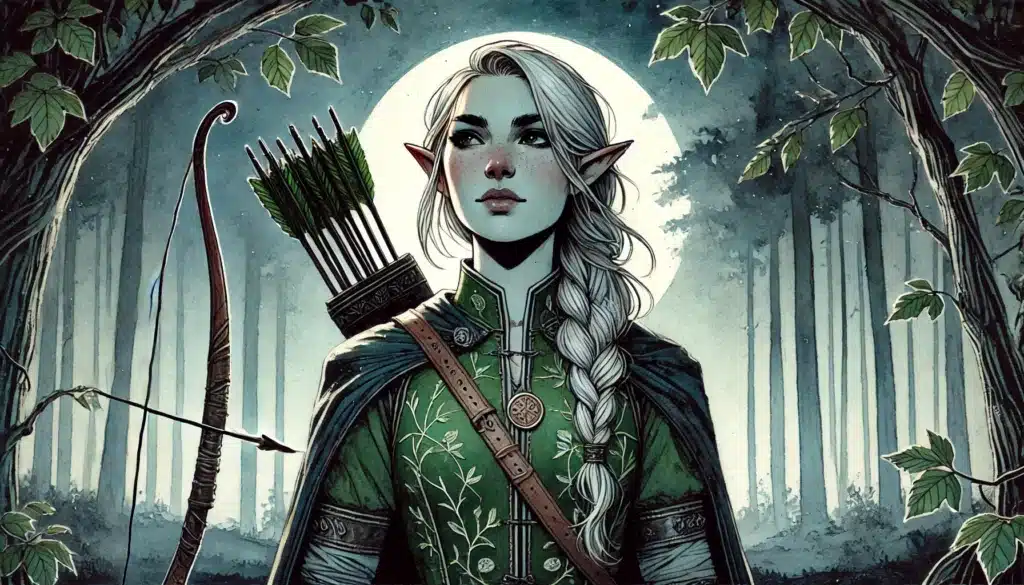
Final Thoughts on Villain Motivation in Play
Villain motivations are more than a pinch of flavor—they can become the foundation of your greatest campaign stories. Starting with a quick concept, you may find that what begins as a one-note foe grows into something far richer. A selfish guildmaster stung by betrayal may morph into a strategist; a wounded lover spurned may discover a cause larger than themselves. Let motivations shift and deepen as your world breathes around them.
Never be afraid to let villains evolve in response to your players. Just as the party’s choices shape the world, they should ripple outward, transforming even their enemies. Players rarely forget the antagonist whose rage was sparked by a misstep… or whose redemptive turn was inspired by their mercy. Track what the party does, and imagine how your villain interprets each move; surprise both them and yourself.
It’s easy to fall into the trap of painting villains as evil for evil’s sake. But when you take a moment—using a table like this, in the heat of prep or the fire of improvisation—to ask “why,” you open the door to deeper play. A compelling why makes every plot twist resonate, every final battle hit home.
And don’t discount the power of randomness! Sometimes a roll generates a motive you’d never have written, forcing both you and your players to think differently. Even a seemingly minor villain with the right purpose can take on a life of their own—becoming a recurring threat, a rival, or, occasionally, an unexpected ally.
Ultimately, every great hero is defined by the challenge they face. The best villains aren’t just obstacles—they are mirrors, rivals, warnings, or dark reflections of what the heroes could become. Give your antagonists purpose, and you give your campaign heart.

